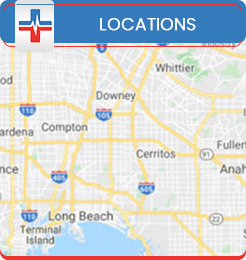Urinary Tract Infections Treatment Questions and Answers
Urinary tract infections often require medical care. Come to Reddy Urgent Care for treatment you can trust. Read our Q and A page below for more information or call our clinic today! We have convenient locations to serve you. We serve patients from Downtown Long Beach CA, Bixby Knolls Long Beach CA, Paramount CA, East Side CA, and Los Altos CA.


Table of Contents:
What are the symptoms of a UTI?
Other symptoms that are commonly associated with UTIs include:
What causes a urinary tract infection?
Conditions or situations that block the flow of urine, such as:
Conditions that negatively impact the ability of the body’s immune system to fight off infection, such as:
How long does a UTI last?
Urinary tract infections (UTIs) are caused by bacteria or viruses entering the urinary tract, typically the urethra. If bacteria from feces comes into contact with the urethra, it can travel to the bladder and cause an infection. Common symptoms of UTIs include pain while urinating, cloudy or bloody urine, discharge or frequent need to urinate even when the bladder is empty.
A urinary tract infection causes one or more areas of the urinary tract, such as the urethra, kidneys, bladder and ureters, to become inflamed. This may produce some of the following symptoms:
• Pain in the side, abdomen or pelvic area
• Pressure in the lower pelvis
• Frequent need to urinate (frequency)
• Urgent need to urinate (urgency)
• Incontinence (urine leakage)
• Painful urination (dysuria) and blood in the urine
• The need to urinate at night
• Cloudy urine and strong or foul-smelling urine
• Pain during sex
• Penis pain
• Flank (side) pain or lower back pain
• Fatigue
• Fever (above 100ºF) and chills
• Vomiting
A UTI develops when bacteria, viruses or fungi enter the urinary tract and cause infection. The most common cause of UTIs is a bacterial infection, in particular the infection caused by the E. coli bacteria, which live in the bowel.
Since a woman’s urethra is shorter than a man’s, the likeliness that UTIs will affect women is much higher, as the bacteria do not have to travel as far to enter the bladder. Adding to the risk in women, the female urethral opening is also close to sources of bacteria from the anus and vagina. Sexual activity can also move bacteria to the urethral opening, allowing access to the urinary tract.
The presence of bacteria in the bladder does not always indicate an infection. Much like the bowel, stomach and other parts of the body, the bladder has bacteria and other microorganisms that help keep a healthy balance and ensure proper functioning.
Some forms of birth control also increase the risk of contracting a UTI. Spermicides irritate the skin, allowing bacteria to invade. Diaphragms may hinder urinary flow, creating a breeding ground for bacteria. Un-lubricated or spermicidal condoms may cause irritation, which can stimulate bacterial growth. The following factors may also promote bacteria growth:
• Not drinking enough fluids
• Intentionally holding in urine for long periods of time
• Spinal cord injuries or other nerve damage that makes it difficult to regularly or completely empty the bladder
• Tumor
• Kidney stones
• An enlarged prostate
• Sexual intercourse
• Diabetes
• HIV
• Other autoimmune diseases
• Catheters
• Certain hormonal changes in the urinary tract of pregnant women can make it easier for bacteria to spread to the kidneys through the ureters
Most UTIs can be cured. After beginning treatment, symptoms of bladder infection diminish within 24 to 48 hours. Kidney infection symptoms take longer to clear up, and may take one week or longer to completely subside.
If you or someone you know is experiencing symptoms associated with UTIs, come to Reddy
Urgent Care for treatment! Our kind and compassionate professionals are experienced in treating urinary tract infections and can provide you with a higher level of care. For more information on our UTI treatments, call our office and get in touch with a member of our specialist team. To book an appointment with our UTI specialist at Reddy Urgent Care, visit our website or speak with us over the phone today.





